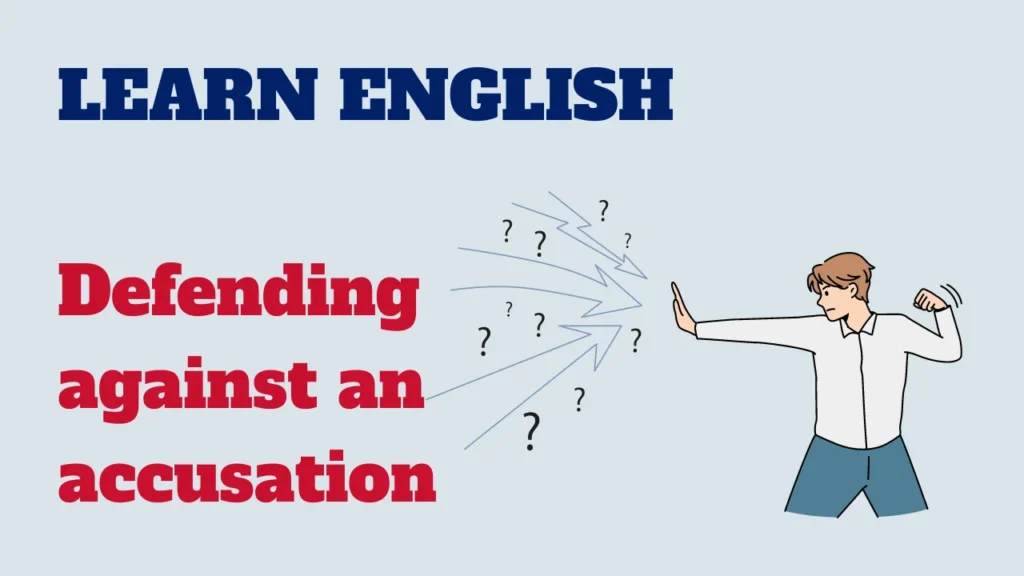Knowing how to defend yourself against an accusation is an important skill to assert your point of view and protect your reputation.

In this lesson, we’ll explore various ways to defend against an accusation in English, using appropriate words and expressions to communicate your arguments.
Defending against an accusation:
I dispute this accusation – Formally disputing
“I dispute this accusation” is used to indicate that you formally challenge the accusation made against you.
Example:
I dispute this accusation of theft.
I am not guilty – Denying guilt
“I am not guilty” is a direct way to deny any wrongdoing.
Example:
I am not guilty of the allegations made against me.
It’s a misunderstanding – Indicating an error
“It’s a misunderstanding” is used to suggest that there has been an error or misunderstanding regarding the accusation.
Example:
It’s a misunderstanding; I never said that.
Defending in a more specific manner:
I can prove my innocence – Presenting evidence
“I can prove my innocence” is used to indicate that you have evidence showing that you are not guilty.
Example:
I can prove my innocence with these testimonials.
I have no responsibility in this matter – Denying any responsibility
“I have no responsibility in this matter” is used to deny any involvement or responsibility.
Example:
I have no responsibility in the loss of this document.
I am a victim of slander – Accusing of defamation
“I am a victim of slander” is used when you believe you are falsely accused or defamed.
Example:
I am a victim of slander; these allegations are false.
Knowing how to defend yourself against an accusation in English is crucial for protecting your reputation and asserting your perspective. Choose the response that best fits your situation and intention. Practice regularly to strengthen your communication skills in English. Happy practicing!



